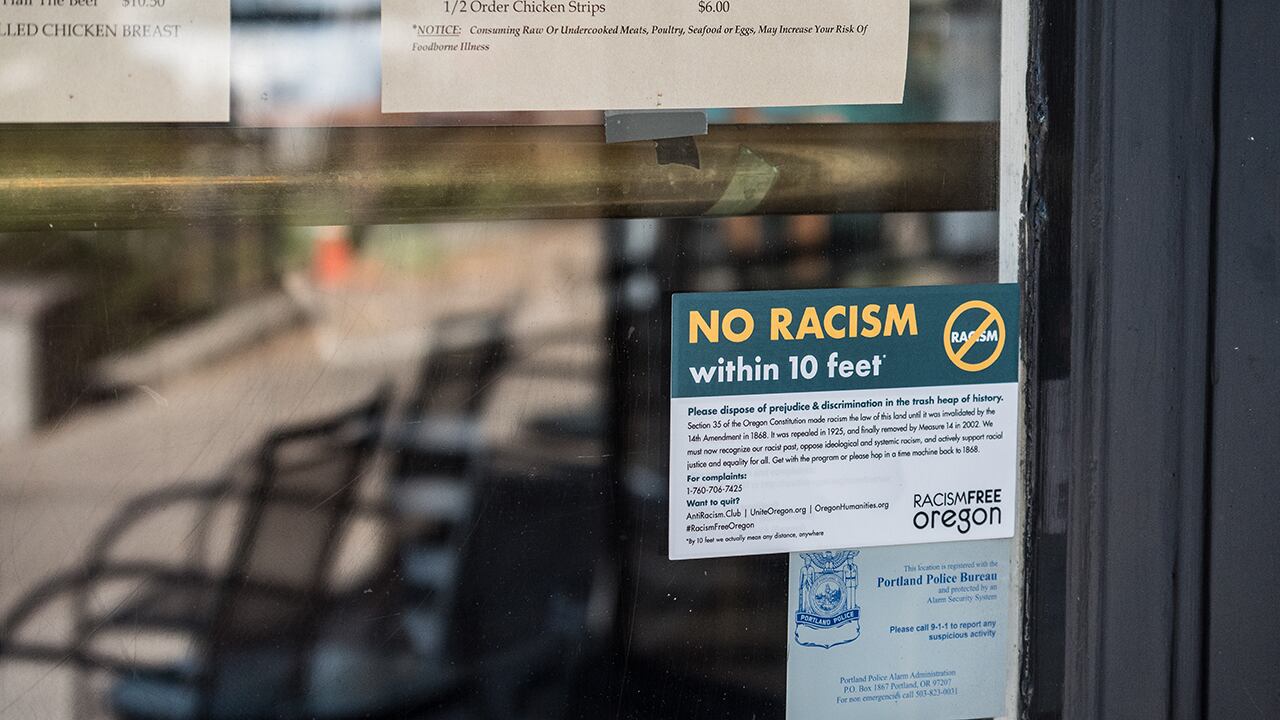Dontae Mathis, a Black business owner, was a victim of hate crime this year.
Mathis, 43, owns the T-shirt-making business Like Dat Apparel in the Foster-Powell neighborhood. On June 7, it was vandalized. Video footage shows two older white men gazing briefly at the shirts reading "Black Lives Matter" in his window before spray-painting, "All Lives Matter," and posting cardboard signs crossing out the letters "BLM."
Mathis says that ever since he posted BLM material in the window, his shop has been graffitied at least once or twice a month.
"I was upset. I was angered," he says. "It kind of makes you question everybody that comes into your store, but also makes you question everybody that walks by that doesn't look your way."
Mathis is experiencing a trend.
According to the Oregon Department of Justice's interactive portal, the number of reported bias crimes in the state more than doubled from May to June, when the racial justice movement erupted in protests.
Among all reported hate crimes and bias incidents in Oregon this year, the most common motive for the perpetrator was race. Data reveals an unsurprising result: The majority of victims of those crimes were Black people.
In June, Black people were the victims in 76 out of the 106 reported racially motivated bias incidents and have been overrepresented ever since. In August, that number was 113 out of 155, and in September, it was 47 out of 64. White people were victims in three or fewer reported incidents each of those months.
The nonprofit Portland United Against Hate also tracked hate crimes this year and cited race as the most frequently reported motive for attacks as well.
Hate crimes are severely underreported across the nation. The FBI had 7,500 reports annually between 2013 and 2017 while the Bureau of Justice Statistics had over 200,000 reports annually. PUAH executive director Debra Kolodny says part of the reason is lack of trust.
"Underreporting is horrific, for the reasons you would expect," Kolodny says. "Targeted communities don't trust law enforcement, so they're not reporting to the police or the FBI for good reasons."
Is the increase in hate crimes a result of Black people being emboldened by protests into reporting incidents more often? Kolodny doesn't think so. Instead, they say the spike in targeting is a byproduct of increased visibility—and backlash.
Consider how Muslims were treated after Sept. 11, 2001. The DOJ website shows that in March and April, Asian communities reported the most cases of hate and bias incidents among all racial demographics. Now the targets are Black people, as protests for racial equity near 180 days.
"For those of us who are targeted all the time, it's not surprising," Kolodny says. "It may be for those of us who live in glorious isolation who are not day to day affected by this." LATISHA JENSEN.
This reporting has been funded in part by a grant from the Jackson Foundation. See more Black and White in Oregon stories here.
